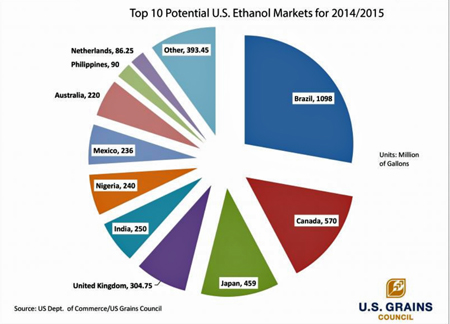With oil prices on a roller coaster because of the deteriorating situation in the Mideast, Americans United for Change stress that Americans need the EPA to stand by a secure, safe, reliable energy source the U.S. has complete control over: clean-burning, homegrown renewable fuels. Preserving the Renewable Fuel Standard (RFS) and cheaper choices at the pump for American consumers means more stability in gas prices, even in times of instability.
The turmoil in the Middle East is continuing causing volatility in gas prices. And with Labor Day around the corner, gas prices are expected to jump just in time for drivers to hit the roads. One solution to keep gas prices lower? Ethanol. As Jeremy Funk, communications director for Americans United for Change points out, the RFS would ensure ethanol is still available for consumers to choose at the pump.
![]() Yet again, The U.S. Environmental Agency (EPA) has just announced the final biofuel volumes of the RFS for 2014 and it seems unlikely the EPA will announced its proposed RFS volumes for 2015 by mid-November as required.
Yet again, The U.S. Environmental Agency (EPA) has just announced the final biofuel volumes of the RFS for 2014 and it seems unlikely the EPA will announced its proposed RFS volumes for 2015 by mid-November as required.
“If anything should give the EPA pause before deciding to roll back the Renewable Fuel Standard as they have proposed, it’s the bubbling turmoil in Iraq,” said Funk. “That’s why the nation can’t afford to scale back the RFS now and put all our eggs in Big Oil’s basket.”
Funk explained that the oil industry has spent millions to rig the system against the homegrown competition. Those companies’ efforts — aside from leading to higher gas prices — would move American jobs overseas, reduce air quality, and contribute to climate change. That’s why American farmers, renewable energy leaders, veterans, nonprofit organizations, and others have come together to demand protection for the RFS. And Funk said they want consumers to join the fight for the RFS and demand lower gas prices and choice at the pump.










